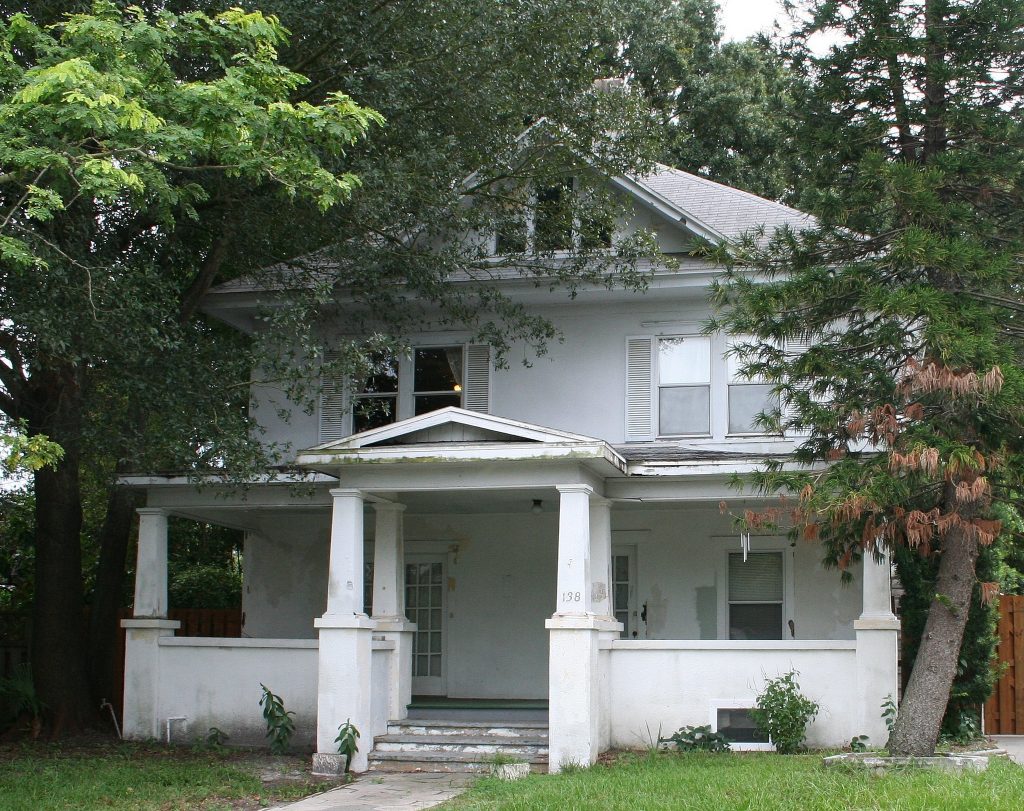 Residents of Louisiana may sometimes feel like there is no other place quite like their home state, but as a recent case out of Vermillion Parish demonstrates, when it comes to the laws regarding land and property, Louisiana truly is one-of-a-kind. Thanks to Louisiana’s history with the Napoleonic Code, Louisiana residents deal with legal issues other State residents never face, such as servitudes, usufructs, and acquisitive prescription. The following case out of Vermillion Parish caused the Louisiana Supreme Court to settle a land dispute by analyzing if a proclaimed landowner qualified as owner of the disputed land through acquisitive prescription and along the way provides some insight into how those terms are defined under code.
Residents of Louisiana may sometimes feel like there is no other place quite like their home state, but as a recent case out of Vermillion Parish demonstrates, when it comes to the laws regarding land and property, Louisiana truly is one-of-a-kind. Thanks to Louisiana’s history with the Napoleonic Code, Louisiana residents deal with legal issues other State residents never face, such as servitudes, usufructs, and acquisitive prescription. The following case out of Vermillion Parish caused the Louisiana Supreme Court to settle a land dispute by analyzing if a proclaimed landowner qualified as owner of the disputed land through acquisitive prescription and along the way provides some insight into how those terms are defined under code.
The land dispute revolves around the Boudreaux family (BF) and the Cummings family (CF). BF was seeking acknowledgment of a predial servitude (right of way) by virtue of acquisitive prescription (acquisition of ownership or other real rights in movables or immovables by continuous, uninterrupted, peaceable, public, and unequivocal possession for a period of time) and an indefinite ruling stopping CF from obstructing their access to the property. BF claimed his family had been using a pathway and gate to access the land next door that belongs to CF since 1948. BF used the right of way to transport farming apparatus and to easily enter the road next to it. In 1969, CF asked BF to move the right of way, but BF ignored the request and continued using the right of way until the CF put a lock on the gate in 2012 and prevented BF’s use.
At the trial court level, CF contended BF was a precarious possessor, thus incapable of possessing the land or having acquisitive prescription run in his favor. A precarious possessor possesses with the permission of or on behalf of the true owner or possessor, a precarious possessor thus does not intend to own the thing he detains. Under Louisiana law, in order for one to truly claim ownership of property, they must not only have possession, but also have proper animus, or the intent to own the thing. The trial court disagreed with CFs argument, and ruled BF acquired the right of way over the CF estate by acquisitive prescription. The court of appeal affirmed the judgment. Cf was unhappy with those decisions so he appealed once again to the Louisiana Supreme Court.
 Louisiana Personal Injury Lawyer Blog
Louisiana Personal Injury Lawyer Blog



 Contract interpretation can be tough, but having a competent attorney review documents before you sign them goes a long way in avoiding surprises further down the line. This is important because the words that are not there are often just as important as the words that are, a lesson learned the hard way by Chet Morrison Well Services, L.L.C.
Contract interpretation can be tough, but having a competent attorney review documents before you sign them goes a long way in avoiding surprises further down the line. This is important because the words that are not there are often just as important as the words that are, a lesson learned the hard way by Chet Morrison Well Services, L.L.C. When a person is injured and left in a condition where they cannot handle their legal claims, their family may act on the incapacitated person’s behalf. If a family member is handling claims on behalf of the incapacitated, it is very important for them to find a good lawyer to help navigate the legal processes. The following appeal of a lawsuit arising out of New Orleans discusses what can occur when multiple lawsuits are filed as a result of disastrous injuries caused by an eighteen wheeler.
When a person is injured and left in a condition where they cannot handle their legal claims, their family may act on the incapacitated person’s behalf. If a family member is handling claims on behalf of the incapacitated, it is very important for them to find a good lawyer to help navigate the legal processes. The following appeal of a lawsuit arising out of New Orleans discusses what can occur when multiple lawsuits are filed as a result of disastrous injuries caused by an eighteen wheeler. The Jones Act is a set of federal rules that protects American workers injured while working at sea. Also referred to as the Merchant Marine Act of 1920, this law allows qualifying sailors who have been involved in accidents or become sick while performing their duties to recover compensation from their employers. So does everyone that is injured or who becomes sick while working offshore automatically qualify for benefits under the Jones Act? Not always. In the following case that stems from an oil platform injury we see how the courts evaluate the seaman status (status necessary to receive benefits) under the Jones Act.
The Jones Act is a set of federal rules that protects American workers injured while working at sea. Also referred to as the Merchant Marine Act of 1920, this law allows qualifying sailors who have been involved in accidents or become sick while performing their duties to recover compensation from their employers. So does everyone that is injured or who becomes sick while working offshore automatically qualify for benefits under the Jones Act? Not always. In the following case that stems from an oil platform injury we see how the courts evaluate the seaman status (status necessary to receive benefits) under the Jones Act. Inferior vena cava (IVC) filters were designed and sold as a supposedly secure fallback to help avert pulmonary embolism for patients who for various medical reasons could not take blood thinners. Unfortunately for over the last ten years these filters have continuously been alleged to have been at fault for adverse conditions due to breaking of the filter. The best IVC filter lawyers have been pursuing these claims on behalf of their clients for several years now. While you can get a full run down of this litigation from a Louisiana IVC filter claim lawyer here,
Inferior vena cava (IVC) filters were designed and sold as a supposedly secure fallback to help avert pulmonary embolism for patients who for various medical reasons could not take blood thinners. Unfortunately for over the last ten years these filters have continuously been alleged to have been at fault for adverse conditions due to breaking of the filter. The best IVC filter lawyers have been pursuing these claims on behalf of their clients for several years now. While you can get a full run down of this litigation from a Louisiana IVC filter claim lawyer here, 
 Being involved in an automobile accident or sustaining a serious injury can be very overwhelming. This is especially true if the accident was someone else’s fault. Although one may be disoriented after an automobile accident, it is pertinent that he/she follows all the necessary steps to ensure that the accident or injury is well documented. One’s first instinct may be to try to minimize the gravity of the situation; however, it is important to understand that a personal injury may have been sustained even if the symptoms are not immediately visible. One never knows if they will have a problem down the road from an injury sustained from the automobile accident, and therefore, a great attorney knows that their client will need proof and documentation to prove that the problem stems directly from the said automobile accident.
Being involved in an automobile accident or sustaining a serious injury can be very overwhelming. This is especially true if the accident was someone else’s fault. Although one may be disoriented after an automobile accident, it is pertinent that he/she follows all the necessary steps to ensure that the accident or injury is well documented. One’s first instinct may be to try to minimize the gravity of the situation; however, it is important to understand that a personal injury may have been sustained even if the symptoms are not immediately visible. One never knows if they will have a problem down the road from an injury sustained from the automobile accident, and therefore, a great attorney knows that their client will need proof and documentation to prove that the problem stems directly from the said automobile accident. 
 Under Louisiana civil procedure, it is well settled that “proper citation is the cornerstone of all actions.” If a party to an action is not served with process in the manner required by law, the result of that action is considered null and void. This requirement is intended to ensure that the defendant in a lawsuit is fully informed of the existence and subject of the plaintiff’s complaint. The concept of proper service is so essential, in fact, that even a defendant’s actual knowledge of a legal action cannot correct a defective citation and service of process. Therefore, a key skill of the attorney that you hire to represent you is a thorough understanding of the various and sometimes complex rules that control how process must be served on the defendant(s) in your lawsuit.
Under Louisiana civil procedure, it is well settled that “proper citation is the cornerstone of all actions.” If a party to an action is not served with process in the manner required by law, the result of that action is considered null and void. This requirement is intended to ensure that the defendant in a lawsuit is fully informed of the existence and subject of the plaintiff’s complaint. The concept of proper service is so essential, in fact, that even a defendant’s actual knowledge of a legal action cannot correct a defective citation and service of process. Therefore, a key skill of the attorney that you hire to represent you is a thorough understanding of the various and sometimes complex rules that control how process must be served on the defendant(s) in your lawsuit.